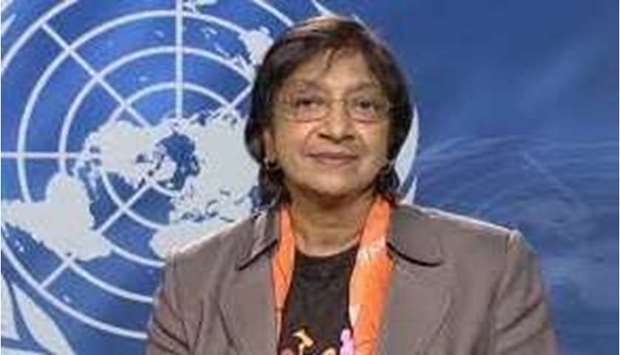Former UN rights chief Navi Pillay will lead the United Nations’ open-ended inquiry into “systematic” abuses in the Palestinian territories, it was announced yesterday.
The president of the UN Human Rights Council said Pillay would lead a three-person investigation intended to scrutinise abuses and their “root causes” in the decades-long Middle East conflict. The probe was triggered during a special session of the council focused on the surge in deadly violence between Israelis and Palestinians in May.
A commission of inquiry (COI) is the highest-level investigation that can be ordered by the Human Rights Council.
The Geneva-based council held a special session on May 27.
It decided to establish an ongoing independent, international commission of inquiry to investigate “all alleged violations of international humanitarian law and all alleged violations and abuses of international human rights law” in Israel and the occupied Palestinian territories, including East Jerusalem.
The commission was tasked with investigating “all underlying root causes of recurrent tensions, instability and protraction of conflict, including systematic discrimination and repression based on national, ethnic, racial or religious identity”.
The commissioners were mandated to get to the facts and circumstances surrounding violations and identify those responsible “with a view to ensuring that perpetrators of violations are held accountable”.
While the council has previously ordered eight investigations into rights violations committed in the Palestinian territories, this is the first with a mandate to examine “root causes” and probe systematic abuses. The COI is set to report to the Human Rights Council each year from June 2022. This commission is the first-ever open-ended COI - others like the one on Syria need their mandates renewed every year. Pillay, the South African former judge, served as the UN high commissioner for human rights from 2008 to 2014.
She will be joined by Miloon Kothari of India, the first UN special rapporteur on adequate housing, and Australian international human rights law expert Chris Sidoti.

Former UN rights chief Navi Pillay
